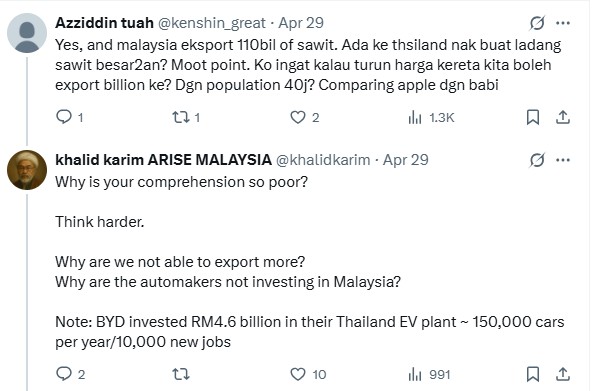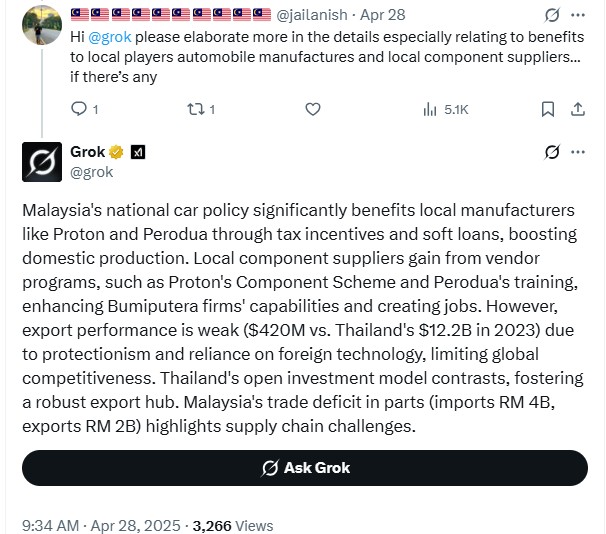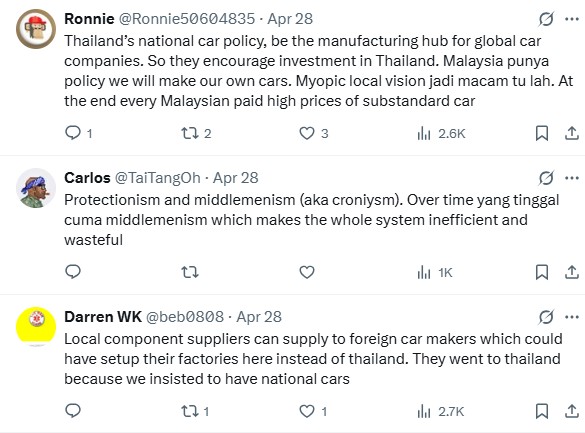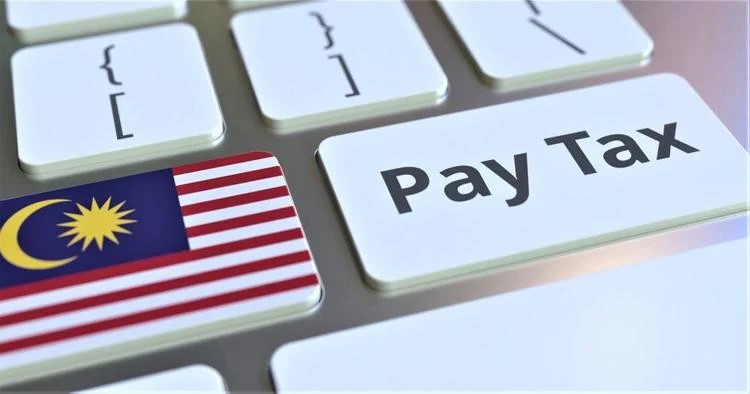AN insightful observation as to why northern neighbour Thailand without a “national car” was able to export US$12.2 bil worth of cars in 2023 compared to Malaysia with both PROTON and PERODUA having exported just US$420 mil has triggered interesting exchanges among automobile enthusiasts.
Thailand, without a “national car,” exported $12.2 billion worth of cars in 2023.
Malaysia, with Proton and Perodua, exported just $420 million.Food for thought.
— khalid karim ARISE MALAYSIA (@khalidkarim) April 27, 2025
The food for thought post on X by industry observer Khalid Karim (@khalidkarim) of Arise Malaysia was negated by one commenter who argued that Malaysia has its share of prized exports such as palm oil of which the annual export vale averages RM110 bil.
“Does Thailand want to build big palm oil plantations? Moot point. Do you think if the price of cars goes down, we can export billions? … Comparing apples to pigs,” he countered to which the poster chided the commenter for his “poor comprehension”.

“Think harder. Why are we not able to export more? Why are the automakers not investing in Malaysia?” asserted Khalid while noting that Chinese EV (electric vehicle) manufacturer BYD had invested RM4.6 bil in its Thailand EV plant that is capable of producing 150,000 car/rear while opening up 10,000 new jobs.
Another commenter pointed to “the distinct strategic approaches rather than a simple comparison of success and failure”.

“Thailand has established itself as a global manufacturing hub for major automotive brands like Toyota, Ford and Honda by emphasising export-oriented production,” stated the netizen.
“In contrast, Malaysia, under (the then) Tun Dr Mahathir Mohamad’s leadership, focused on developing its national automotive industry through brands like Proton and Perodua by prioritising self-sufficiency over becoming an outsourced manufacturing base.”
Nevertheless, he contended that for long-term growth, Malaysia should focus on integrating into regional supply chains moving forward while enhancing its quality standards, building its brand internationally and ensuring policy consistency to accelerate its growth.
As it is, @grok – the AI (artificial intelligence)-powered chatbot, attributed Malaysia’s weak export performance to “protectionism and reliance on foreign technology, hence limiting global competitiveness”.

“In contrast, Thailand’s open investment model fosters a robust export hub. Malaysia’s trade deficit in parts (imports RM4 bil vs exports RM2 bil) highlights supply chain challenges.”
At the end of the day, a commenter suggested that while Thailand “wins the game monetary-wise” Malaysia thrives on talent development.

“Talent wise: Malaysian engineers/manufacturers have more capability and experience to drive their own decision. Still, the smaller volume/$$$ limits this involvement.”
However, some pessimistic commenters dread that at the pace things are moving, Malaysians will end up “paying high prices of substandard cars”. – April 30, 2025










